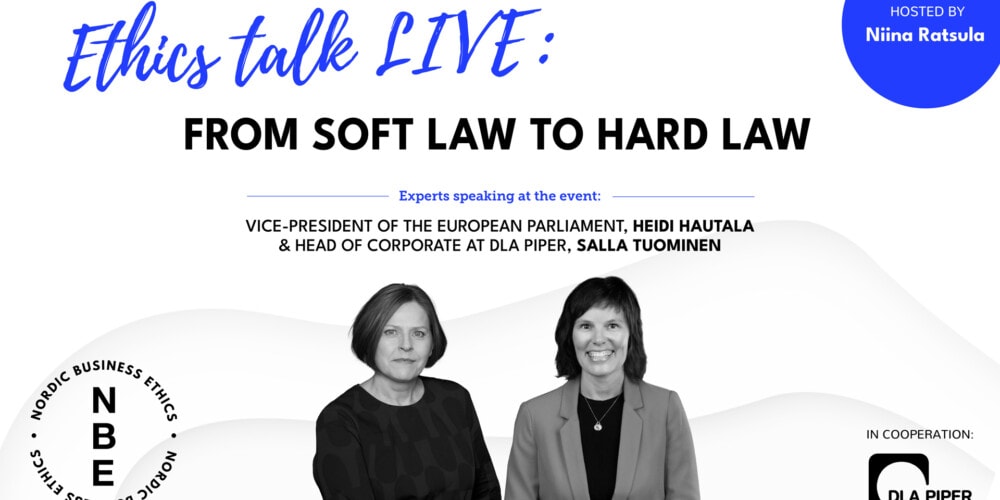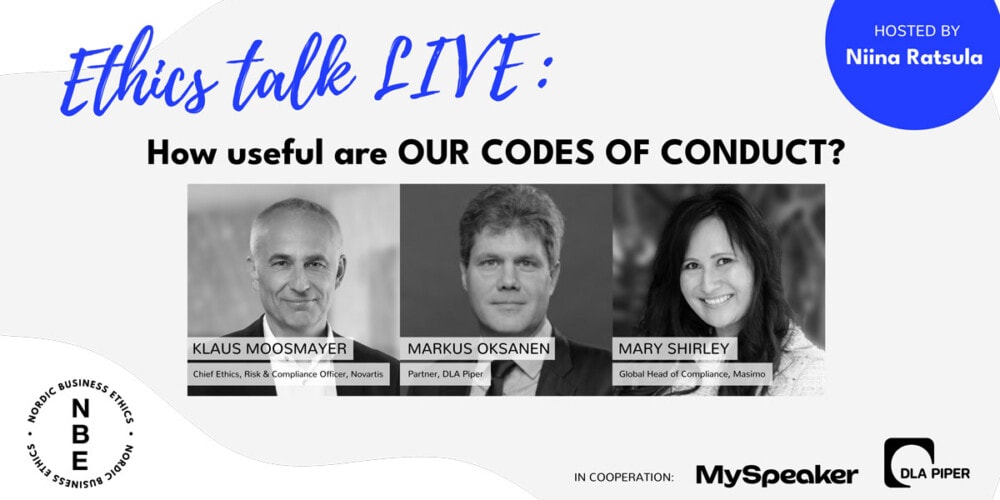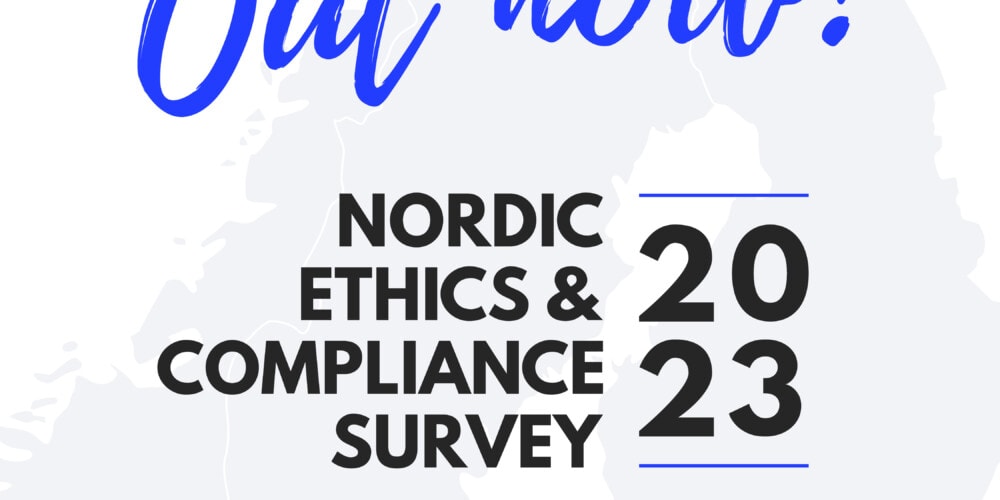To blow or not to blow?
Have you ever blown the whistle? Would you do it if you witnessed something unethical or illegal in your organisation? Would you blow the whistle knowing that your colleague lost their job for raising the same concerns?
IT IS HARD TO ‘DO THE RIGHT THING’
I have not personally filed a report in a reporting channel, but I have reported about misconduct to my manager and other relevant parties in the organisation. And in my professional capacity I have witnessed many brave souls that have used the whistleblowing reporting channel. These persons have reported about serious issues, that not only are wrong and unethical, but that many times could cause severe legal and financial consequences to the organisation and to individuals. Unfortunately, many of these persons do not however feel like brave souls and heroes. They are terrified and have agonised about whether to report or not to report. In our compliance trainings we routinely say ‘speak-up’, ‘talk to your manager’, ‘file a report’ and do not perhaps understand how hard it actually can be ‘to do the right thing’.
A person blowing the whistle may report on their boss or a long-term colleague that has become a personal friend as well. They may report on a critical customer project or a supplier that the company is dependant on, or they may reveal that the results, used as basis for year-end bonuses, are inflated and that no bonuses should be paid. A person blowing the whistle may be living in a country with no unemployment benefits and be the sole provider for their extended family. A person blowing the whistle may be living in a country where the government historically have surveilled their citizens and where ‘alternative thinkers’, perhaps their relatives and close friends, have ‘disappeared’. Many whistleblowers, in high profile public scandals, have lost their jobs and have a difficulty to find a new employer. But despite the stigma we do know that whistleblowers are crucial for revealing corrupt and fraudulent business practices and for creating a more transparent business environment where the competition is fair, where public money is not misused and where employees are treated with respect and dignity.
RISING AWARENESS OF THE IMPORTANCE OF WHISTLEBLOWING
According to Karin Henriksson, who has worked with whistleblowing for over a decade, there are however some positive developments. Today there is less stigma around whistleblowing and whistleblowers. She mentions the #metoo movement in 2017 as a watershed moment, when many organisations finally understood that allegations of misconduct can not be ignored or swept under the carpet and that they need to implement proper channels and processes for managing reports relating to for example discrimination and harassment. Karin also mentions companies that have realised that the reports actually provide very valuable information about the ‘real culture’ and what is happening throughout the organisation and that the media is more positive towards whistleblowers and tend to portray them as heroes. She also mentions that the Cambridge Analytica whistleblower Christopher Wylie is running a successful consultancy business and was for example in 2019 retained by H&M to support them with getting better data insights on customers, products and markets.
Another positive development is the EU whistleblowing directive that entered into force in end of 2019 and will have to implemented by the end of 2021. Karin points out four key points for organisations to be aware of and that the directive will require:
- Mandatory implementation of a secure and confidential reporting channel for organisations with more than 50 employees.
- Making sure that the reports are assessed and managed by a competent and impartial team, including follow-up and communication with the whistleblower.
- Being aware of two specific time limits regarding feedback to the whistleblower within 7 days and 3 months.
- Informing employees about the whistleblowing system, non-retaliation and the possibility to report externally for example to a national or EU authority.
Many larger organisations already have whistleblowing channels, but many smaller and medium sized organisations do not. According to our recent Ethics Pulse survey many employees feel that mandatory whistleblowing channels are needed. Even if the implementation of a whistleblowing tool is pretty straightforward, the biggest mistake an organisation can make is to assume that putting a link on intranet to the reporting channel is what is needed. This is only the beginning, which must be supported by proper communication to build the trust in the system and in the process. Another mistake is to assume that no reports is good news, in reality it is the opposite. A healthy organisation has a culture where concerns and issues are raised and discussed, both anonymously and to for example compliance or HR. And all organisations have issues, where no reports indicate probable issues with lack of trust and openness.
MORE INSIGHTS IN ETHICS TALK
Healthy organisations and businesses need whistleblowers and leaders that are mature and humble to take on the feedback, conduct an independent investigation and whenever possibly transparently disclose the impact from whistleblowing. We all have a role to play to ensure that whistleblowers feel like heroes and that the stigma around whistleblowing is removed. And as part of this we have to acknowledge that ‘to blow or not to blow’ is not always an easy call. And if you now think about the ‘flood of nonsense reports’ you should definitely listen to the Ethics Talk podcast.
Anna



